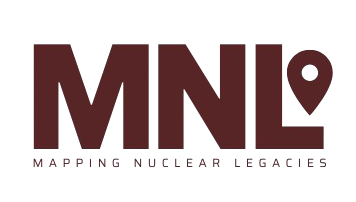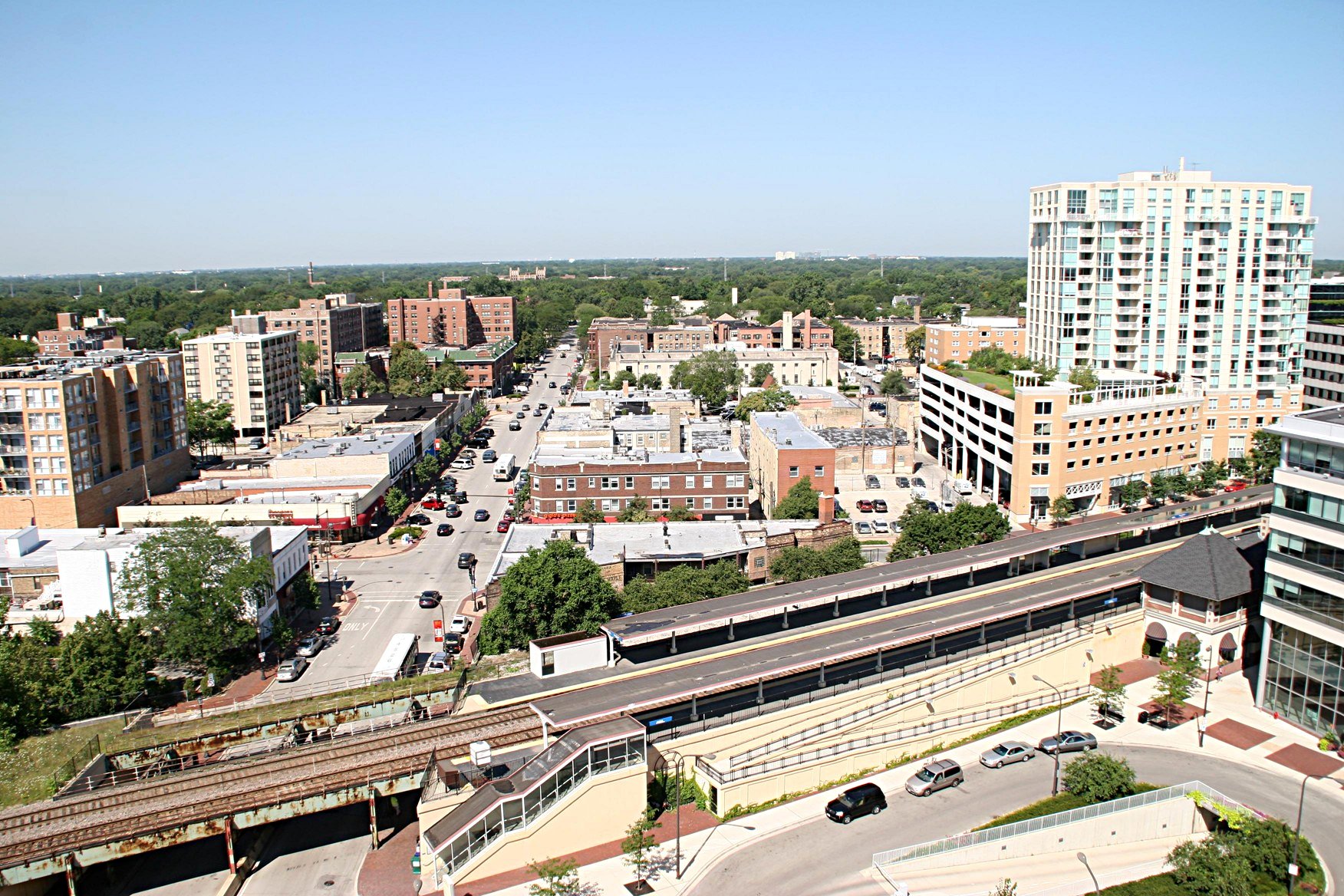Table of Contents
Evanston has a long-standing history of being involved in denuclearization efforts.
On October 28, 1985, the Evanston City Council declared the city a nuclear-free zone with the adoption of Resolution 79-R-85, signed by Mayor Joan Barr. This resolution made Evanston the first city in Illinois to symbolically declare itself nuclear-free through a non-binding resolution. This action was part of the Evanston Nuclear Freeze campaign, led by Chairman Larry Geni, which gained significant support from the community. In the 1985 Evanston parade, which drew 80,000 attendees, the campaign featured a float with the slogan “A Beacon of Hope: Make Evanston a Nuclear-Free Zone.”1 The original petition to declare Evanston nuclear-free garnered over 5,000 signatures2. Resolution 79-R-85 is a “Declaration of the City of Evanston as a Nuclear Weapon Free Zone,” emphasizing that “it is imperative to the preservation of human life to prevent nuclear holocaust.” The resolution prohibits the production of nuclear weapons within Evanston and bars any facility from researching, equipping, storing, supplying, or transporting any material solely for the production of nuclear weapons or their unique components. The resolution also localizes the nuclear abolition movement by highlighting the risks nuclear weapons pose to the city and its residents, whether detonated, produced, transported, stored, procured, or disposed of within Evanston.
The city’s commitment to denuclearization has continued ever since. In 2008, Evanston became a member of Mayors for Peace, an organization dedicated to the abolition of nuclear weapons. And in January 2020, Evanston adopted Resolution 136-R-19, which encourages the U.S. government to sign the United Nations’ Treaty on Prohibition of Nuclear Weapons (TPNW) and prevent nuclear war, the language of which follows a model for city resolutions provided by the Back from the Brink campaign. The resolution utilizes the Back from the Brink template for denuclearization legislation, encouraging the U.S. government to sign the TPNW and prevent nuclear war through: renouncing the option of using nuclear weapons first; ending the sole, unchecked authority of any president to launch a nuclear attack; taking U.S. nuclear weapons off hair-trigger alert; canceling the plan to replace its entire arsenal with enhanced weapons; actively pursuing a verifiable agreement among nuclear-armed states to eliminate their nuclear arsenals; and moving forward to Congress to address this resolution more broadly. The resolution also addresses that nine nuclear states hold nuclear weapons far more destructive than those used in Japan in 1945, and highlights the environmental devastation of nuclear war and the heightened risk posed by climate change.
136-R-19 was supported by many religious organizations and groups in Evanston’s area, which have consistently led local efforts around denuclearization since the 1986 declaration was passed. Given its proximity to Chicago — the birthplace of the Manhattan Project — these efforts have further attracted substantial support from social and religious institutions in the Chicago area, which have come together to form an interfaith coalition that advocates for peace. Additionally, faculty at Northwestern University (located in Evanston), are committed to the cause of denuclearization. They include William Revelle, a governing board member for the Bulletin of Atomic Scientists, and Hirokazu Miyazaki, who is a peace correspondent with the city of Nagasaki in Japan.
Here you will find information and resources to learn more about Evanston’s extensive history of activism and diplomacy in advocating for a nuclear-free world, as well as information about the 2020 resolution, 136-R-19.
- Donald M. Schwartz, “Evanston Becomes a ‘Nuclear-Free Zone’,” Chicago Sun Times, October 29, 1985; Nuclear Free America Records, Box 6, Folder 13, VAlley Library, Oregon State University.
↩︎ - Larry Geni, Chairman, Evanston Nuclear Freeze Campaign, to Nuclear Free America, n.d., Nuclear Free America Records, Box 6, Folder 13, Valley Library, Oregon State University. ↩︎
News, and Other Relevant Links
Evanston officials call for treaty against nuclear weapons
Chicago Tribune (2020)
The Ripple: Evanston first city in Midwest to support denuclearization efforts
The Daily Northwestern (2020)
Annelise Riles: Nuclear weapons are an existential threat. We should eradicate them.
Chicago Tribune (2022)
Activists seek anti-nuclear war resolution from Council
Evanston Now (2019)
Featured Resolutions
Public Meeting Summaries
RESOLUTIONS
Resolution 136-R-19, Calling for a Treaty on Prohibition of Nuclear Weapons
November 27, 2019
January, 13th, 2020 — Evanston City Council Meeting on Resolution 136-R-19
Mayor, Stephen H. Hagerty
In this city council meeting, several individuals spoke out in support of the “Back from the Brink” resolution offered to Evanston City Council members during the public comment portion of the meeting.
Robyn Gabel (18:00), the Majority Leader of the Illinois House of Representatives and the representative for the 18th district, began the discussion on the resolution by expressing her “staunch support” for it, emphasizing the need to call on Congress to be a global leader in preventing nuclear war. Touching on her personal experience as a child participating in bomb-preparation drills by hiding under desks, she highlighted the current heightened threat of war, with nine countries holding 14,000 nuclear warheads. Gabel further explained that climate change might destabilize world powers, creating more possibilities for conflict. She asserted that a national defense focused on nuclear armament actually decreases national security, and vowed to propose the resolution to the state.
David Combs (20:30), the Operations Manager of the Food & Environment Program for the Union of Concerned Scientists, offered his opinions on the resolution. He explained that Chicago is a top target for nuclear weapons, adding that Evanston is unfit to provide the necessary medical responses that would be needed in the event of a nuclear war. He also highlighted that $22 million of Evanston residents’ federal taxes go towards nuclear weapons every year. Combs emphasized the need to push for Senator Dick Durbin to support this resolution in Congress.
Marcia Bernstein (22:30) spoke of her concern regarding President Trump’s withdrawal from the Comprehensive Joint Plan of Action related to nuclear weapons. She emphasized the potential threat of nuclear war due to rising tensions in the Middle East.
Father Kevin Feeney (23:15) of the Sheil Catholic Center introduced Professor Hirokazu Miyazaki of Northwestern University, a peace correspondent for the city of Nagasaki, Japan with personal involvement in peace and justice issues. Father Feeney also highlighted the issue of human error in nuclear situations, such as low intelligence and the potential for raising false alarms.
Reverend Michael Wolfe (25:00) listed community partners that support the “Back from the Brink” Resolution, including:
- St. Nicholas Peace and Justice Committee
- Father Bob Oldershaw, Pastor Emeritus at St. Nicholas Catholic Church (St. John XXIII Parish)
- Sheil Catholic Center – Kevin Feeney Sheil Catholic Center
- Saint Mary’s Church – Father Kevin McCray, Pastor
- St. Joan of Arc Church – W. Kenneth Anderson, Pastor
- Saint Athanasius Church – Father Hernan Cuevas, Pastor
- Second Baptist Church – Reverend Dr. Michael Nabors
- Reba Place Church – Pastor Charlotte Lehman
- Lake Street Church Peace and Justice Committee – Reverend Michael Wolfe
- Evanston Friends Meeting (Evanston Quakers)
- Jewish Reconstructionist Congregation
- Unitarian Church of Evanston Social Justice Council
- Pastor Daniel Ruen of Grace Lutheran Church
- St. Athanasius Peace and Justice Ministry
- St. Joseph and Francis Xavier Parish Peace and Justice Ministry
- Benedictine Sisters of Chicago
- The American Friends Service Committee of Chicago
- Neighbors for Peace
- Voices for Creative Nonviolence
- The Union of Concerned Scientists
- Physicians for Social Responsibility
- Chicago Area Peace Action
Reverend Dr. Michael C. R. Nabors (30:50) of Second Baptist Church in Evanston offered his support for nuclear disarmament, delving into his personal history with Reverend Robert Moore, who left him with the quote: “All life will end if we do not demand an end to stockpiling arms and then reducing those that exist.” He emphasized that even thirty years later, local problems beset us, but the issue of nuclear weapons cannot be ignored.
Margaret Nelson (48:30) offered a song, including the following lyrics:
“If the north half of Earth starts swapping bombs, swapping bombs, oh, swapping bombs,
That nuclear dust will come home to Mom.
We’re living in just one world.
So I won’t apologize or ask anybody’s pardon, anybody’s pardon, anybody’s pardon.
I don’t want plutonium polluting my garden.
We are living in just one world.”
Following the public comment portion of the meeting, the resolution was passed unanimously through the consent agenda.

